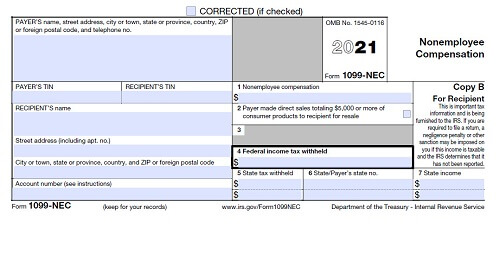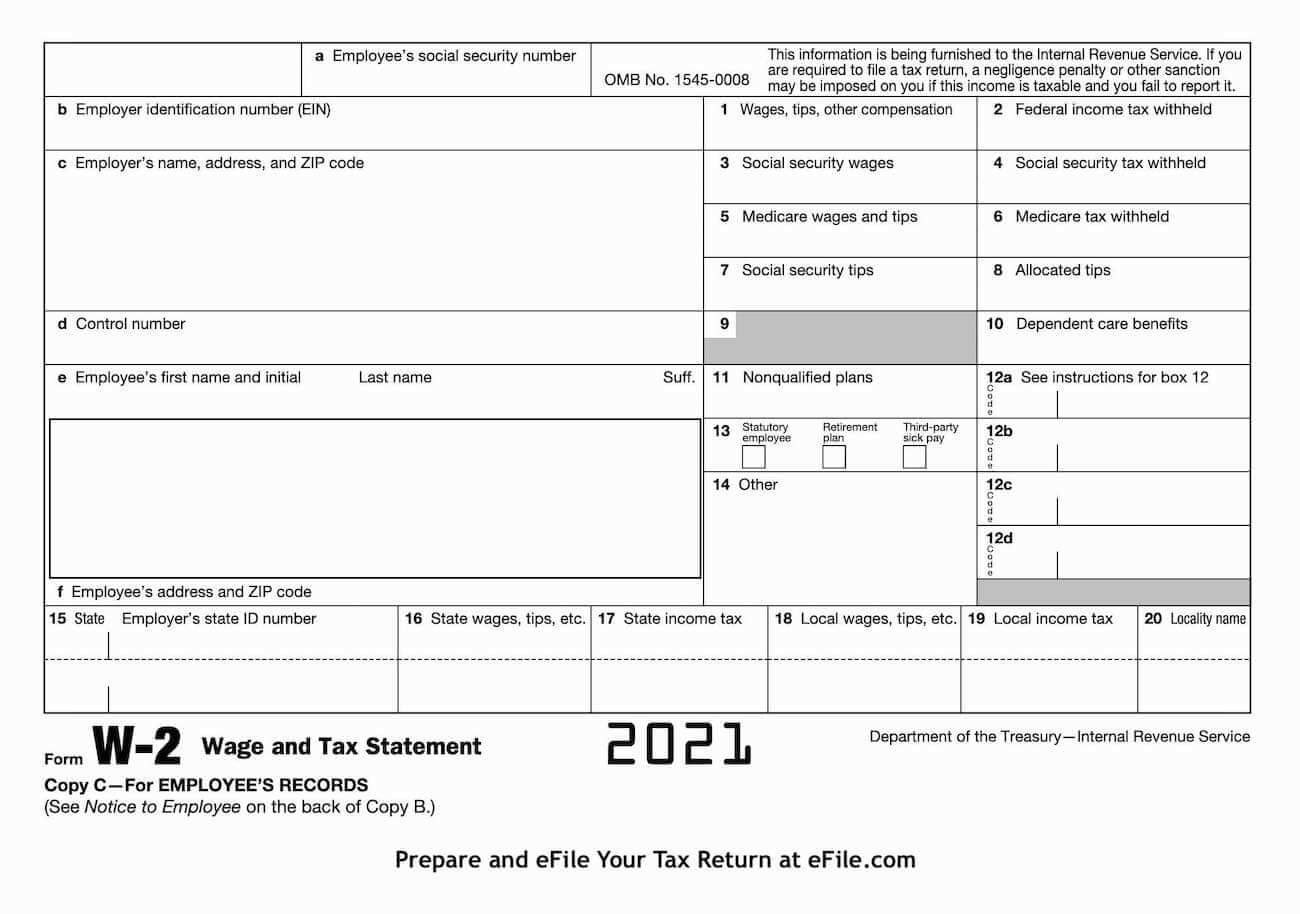As an Upwork 1099 independent contractor or small business owner, you need to report and file your own self-employed taxes. This blog post will cover what type of taxes you need to pay as an individual who is paid by Upwork, common 1099 tax deductions, quarterly taxes, and how to go about filing them for the current year.
After reading this blog post, you should have a better understanding of whether or not you need to file your own taxes as well as where and how those taxes can be filed. We still strongly recommend you consult with a tax advisor for any questions or tax advice based on your particular circumstance.
Without further ado, let's start off with when you will receive an Upwork 1099 form.
Note: If you want to lower your tax bill to the IRS, be reminded of deadlines, and estimate your taxes, try Bonsai Tax. Our tax software makes filing independent contractor taxes a breeze. We'll scan your credit card/bank statements to discover tax write-offs and maximize your tax deductions. Users typically save $5,600 on their tax bill by using our app. Claim your 7-day free trial today.
When Will You Receive An Upwork 1099 Form?
If you freelanced and earned income on the Upwork platform, you'll receive a form 1099. A 1099 is a tax form that reports sources of income that don't count as an employee or W2 earnings. There are some instances where you'll file a 1099 and W2 in the same year.
There are several 1099 tax forms and each one reports different sources of income and has different requirements to receive a form. The 1099 tax forms you will get will be based on how many transactions you made, the platform on which you received funds, and how much you earned. Under the IRS's Section 6050W code, you won't file a 1099-K, 1099-MISC or 1099-NEC, through Upwork.
So, Upwork doesn't send you a 1099 form as they are an escrow subsidiary. A client or employer who uses Upwork to pay a freelancer is merely using the platform as a "third-party settlement organization". So, your clients are responsible for distributing a form 1099-K, 1099-NEC or 1099-MISC out to you in accordance with IRS regulations.
You will receive a copy of your 1099 forms via U.S. Postal Service by January 31.

1099-NEC (Freelancers Used To Report Income On The 1099-MISC)
Form 1099-NEC or Form 1099-MISC previous to 2020, is the most common information return sent out to freelancers. The reason why is because the requirements to receive this form is fairly simple. If you earned more than $600 from a non-employee payment, you'll get this form. Sometimes, you will get a 1099-K instead but we'll go over that in the next section. Non-employee compensation is reported in the 1099-NEC or 1099-MISC prior to 2020. The IRS form 1099-NEC did not replace the 1099-MISC. Non-employee compensation is reported on a Form 1099-NEC in place of the Form 1099-MISC.

1099-K
The other information return you'll receive as an Upwork freelance is the Form 1099-K. The requirement to receive a 1099-K is: freelancers in the U.S who receive more than $20,000 AND had more than 200 transactions through Upwork. So, if you earned $30,000 but only had 100 transactions, you would not receive a 1099-K.
It should be noted that the 1099-K is an information return to report payments and not earnings. Upwork is required to report all payments sent out to freelancers, regardless of refunds or fees paid.
For instance, you'll be sent a form 1099-K even if you refunded $25,000 worth of income and only actually made $600. Also, if you earned $25,000, had over 200 transactions, no matter how much you paid in fees, you'll still receive a 1099K.

W-2 Exception
If you and your client agreed that you are an employee, you'll be compensated through Upwork Payroll. What this means is that the Upwork platform will be your employer, withhold money for the payment of taxes, and you'll file a Form W-2. If you received payments through Upwork Payroll, this means you will not have to pay taxes as an independent consultant or contractor.
What To Do If You Do Not Receive A 1099 Form from Upwork...
If you know you met those requirements above and you did not receive a 1099, don't panic. There are a few reasons why. Double-check the information on your Upwork account. If your address is wrong, the 1099 form may have been sent to the wrong address.
On the other hand, if you earned less than $600, your client is not required to send you a 1099-MISC, 1099-NEC or 1099-K. just because you did not earn $600 in payments, does not mean you are off the hook for paying taxes on your earnings. We'll explore that more in the next section.
Self-Employed Taxes 101
The Internal Revenue Service (IRS) defines all freelancers or independent contractors as self-employed business owners. This means you are responsible for reporting and paying your self-employment taxes. Self-employment tax is composed of two parts, Social Security (12.4%) and Medicare (2.9%).
Bonsai has an online self-employment tax calculator for you to use to quickly total up your tax liability.
Making Estimated Tax Payments
The U.S. operates on a pay-as-you-go tax system. This means, when you freelance on Upwork, you'll need to pay estimated taxes on the income you earn throughout the year. By paying taxes quarterly, you'll be able to avoid a large tax bill at the end of the year. To calculate your quarterly tax payment, you just need to take the total tax liability from the previous year and divide that by four.

Quarterly Tax Deadlines
The deadlines for a freelancer to send in estimated tax payments are:
- April 15
- June 15
- September 15
- January 15 of the following year
If you send less than the amount you owe to the IRS, you may be penalized. This is called a tax underpayment penalty. This fine will be added to your tax bill at the end of the year.
Don't worry too much about a penalty for the overpayment of estimated taxes. You'll merely receive a refund for the taxes that you overpaid.
IRS direct pay is where you can make your quarterly tax payments.

Tax Deductions To Claim As An Upwork Freelancer
There are a number of business-related expenses that an Upwork independent contractor has the luxury of deducting from their tax bill. It is vital to properly organize and store your receipts for taxes when you file a form 1099. The IRS will want some proof of your business expenses. You can manually track expenses with a 1099 excel template or use software (which we highly recommend).
Now, let's get into the most common tax deductions available to self-employed freelancers.
Common Tax-Write-offs Available To Upwork Freelancers
- Office supplies - you can deduct the cost of office supplies used to run your freelance business i.e. paper, pens, staplers, printer ink cartridges, etc.
- Computers - if you bought a new computer for your freelance job, you can deduct the expenses. You'll be able to deduct the entire purchase all at once or chose to deduct it over several years. This is a process known as depreciation.
- Travel expenses - traveling for your freelance work? Well, if you are required to travel out-of-town for business-related trips, you could claim business travel tax write-offs like flights, hotel rooms or AirBNBs, car rentals, and meals
- Upwork fees - you can get huge money kick-back by claiming all of those pesky Upwork fees from your tax bill.
- Meals with clients - if you have a meeting with a client or professional to discuss your business, this can be written off. Check out our guide to the business meal deduction.
- Equipment depreciation - just like how you can deduct depreciation of your laptop or computer, you can deduct the cost of other equipment you use for business for several years after you purchased it.
- Home office reimbursement or deduction - if you are a freelancer with a home office, you can opt to deduct a portion of your home from your taxes.
- Cell phone bill (partially) - the portion of your cell phone bill which you use for freelancing can be claimed on your taxes as an expense
- Education expenses - if you invested in educational courses or conferences to things related to your industry, you'll be able to deduct the tuition and fees.
- Software tools - if you use any software for marketing or completing a freelance job, it can be deducted from your tax bill.
- Related advertising and marketing expenses - the cost of ads or website maintenance or creation can be deducted
- Internet bill - You'll be able to deduct a portion of your wifi bill from your tax bill
- Health Insurance - Coverage costs for freelancers and their family might be deducted from the freelancer's own income/earnings.
- Start-up fees -business structure formation, attorney fees, etc can be written off
- Business mileage deduction - track the miles you drove to client meetings or work to claim on your taxes
Note: if you would like an app to automatically record, organize and track your tax deductions, try Bonsai Tax. On average, users save $5,600 on their tax bill with our software. Save more of your money this year and maximize your deductions. Try a free trial for 14 days here.
Time To File Your Tax Return...
Taxes are a pain, but they're inevitable. It's not so bad, especially with the help of Bonsai Tax. We've got your back on Upwork 1099 taxes for this year and in years to come. Every quarter, we'll send you a reminder that it’s time to pay your quarterly taxes online —and if you need any assistance along the way, just let us know. You can also use Bonsai Tax as a one-stop-shop for all your business deductions too. Click here to get started now.
Remember, this article is not meant to be tax advice. We always recommend you consult with a tax advisor or professional for all of your Upwork 1099 tax filing-related questions.






